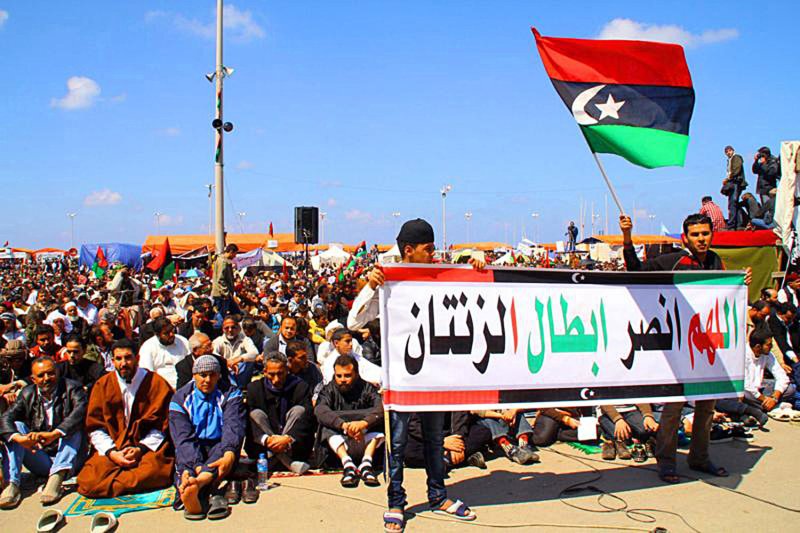Libyans rally in Benghazi after hearing that Libyan rebels seized control of this strategic city the west gate of Benghazi on March 26, 2011, as Libyan rebels seized control of this strategic city marking their first significant victory over Colonel Kadhafi's forces since the launch of the Western-led air strikes a week ago. UPI\Mohamad shukhi. |
License Photo
LONDON, March 29 (UPI) -- If sufficiently armed, the Libyan opposition could take down the regime of Libyan leader Moammar Gadhafi in a matter of days, a spokesman said in London.
London was the site Tuesday of a conference on a post-Gadhafi Libya. Western leaders, including British Foreign Secretary William Hague and U.S. Secretary of State Hillary Clinton, met with representatives of the Libyan opposition.
The Transitional Interim Council in a statement on its vision for the country said it was committed to overthrowing the Gadhafi regime and usher in a civil and pluralistic government, The Independent newspaper in London reports.
The transition council was represented by Mahmoud Jibril, who met Tuesday with British Prime Minister David Cameron.
Jibril's transitional movement said a post-Gadhafi government would be open to every adult Libyan citizen. Voting would take place for Parliament and a president, the national council said.
"The real aspirations of the Libyan people are to be free, to live under a constitutional democratic system, where there is rule of law, all essential freedoms are guaranteed and people can fulfill their potential and realize their aspirations," the opposition statement continued.
Western leaders enforcing a U.N.-backed no-fly zone are deliberating over the specific language of U.N. Security Council Resolution 1973, which authorized military force in Libya. Many leaders were reluctant to specifically back arming Libyan rebels amid concerns that al-Qaida fighters were in their ranks.
But Mahmoud Shamman, a spokesman for the national council, was quoted as saying opposition fighters were taking on a Libyan army with only small arms.
"We don't have the arms, otherwise we would finish Gadhafi in a few days," he said.





